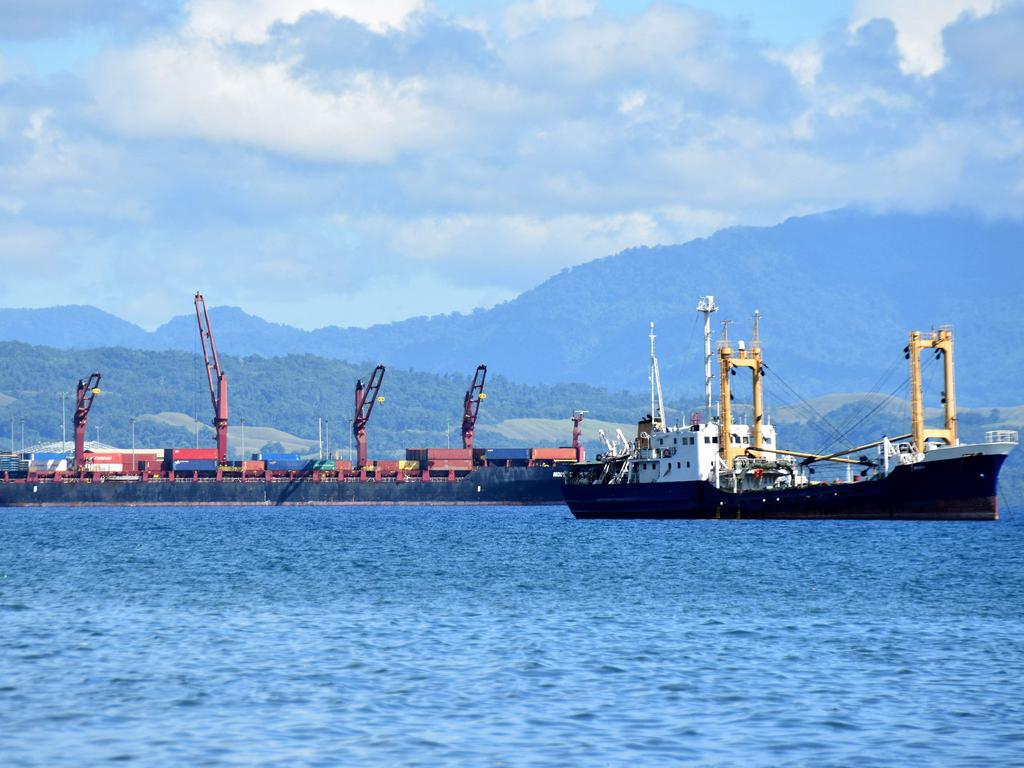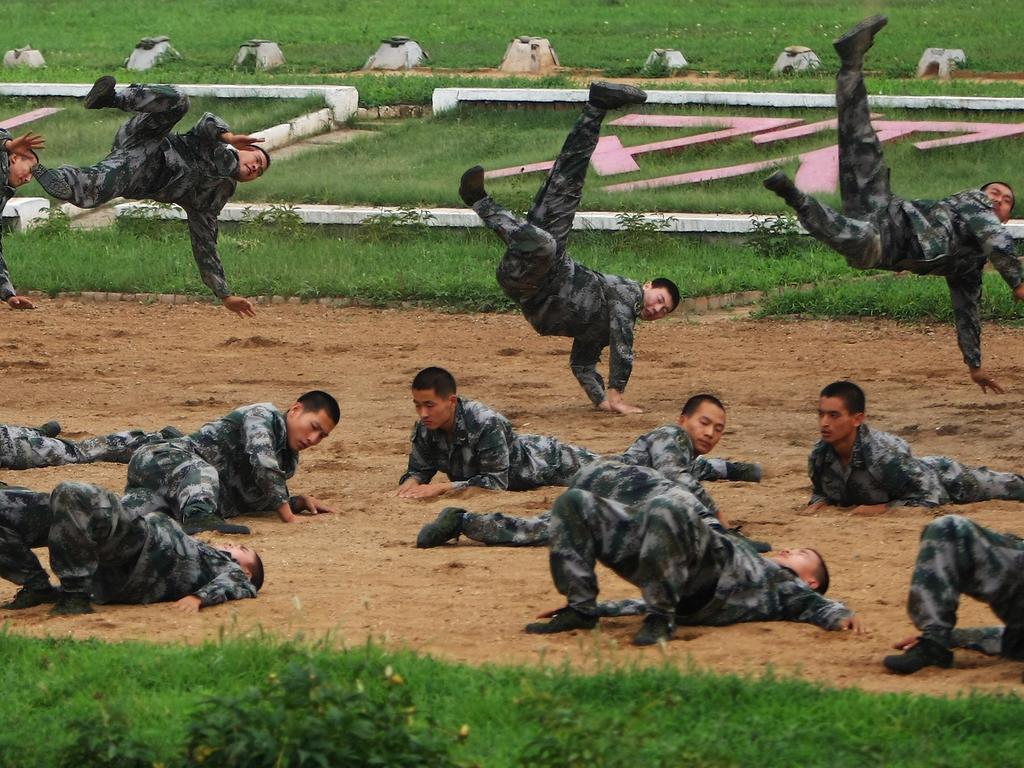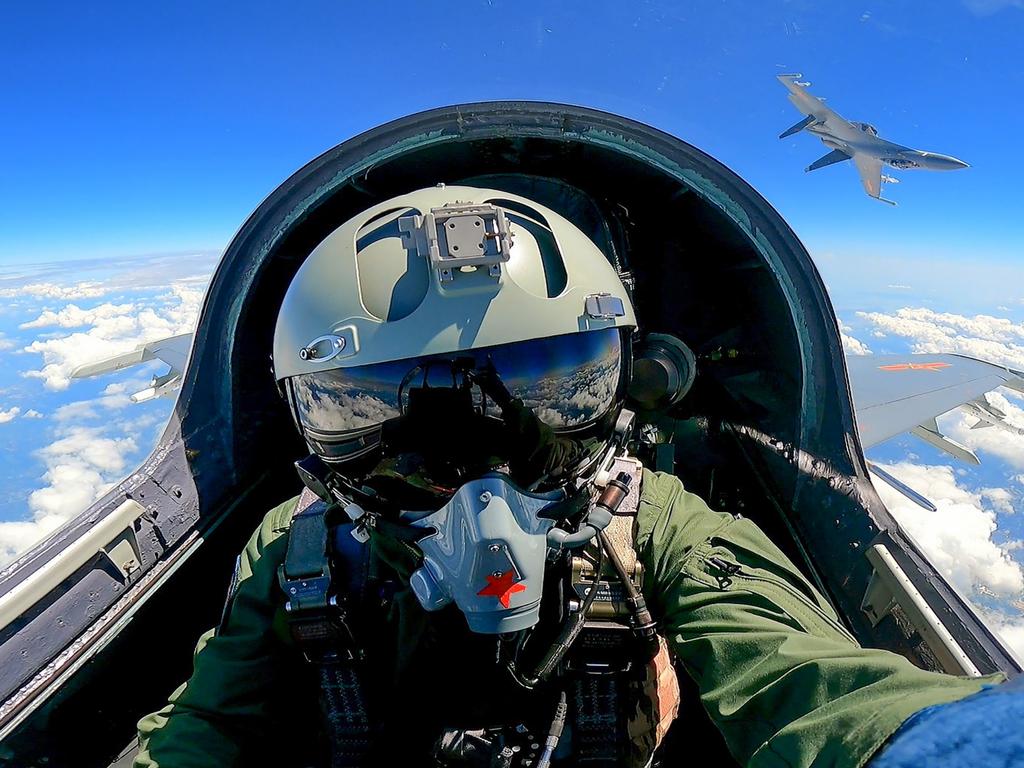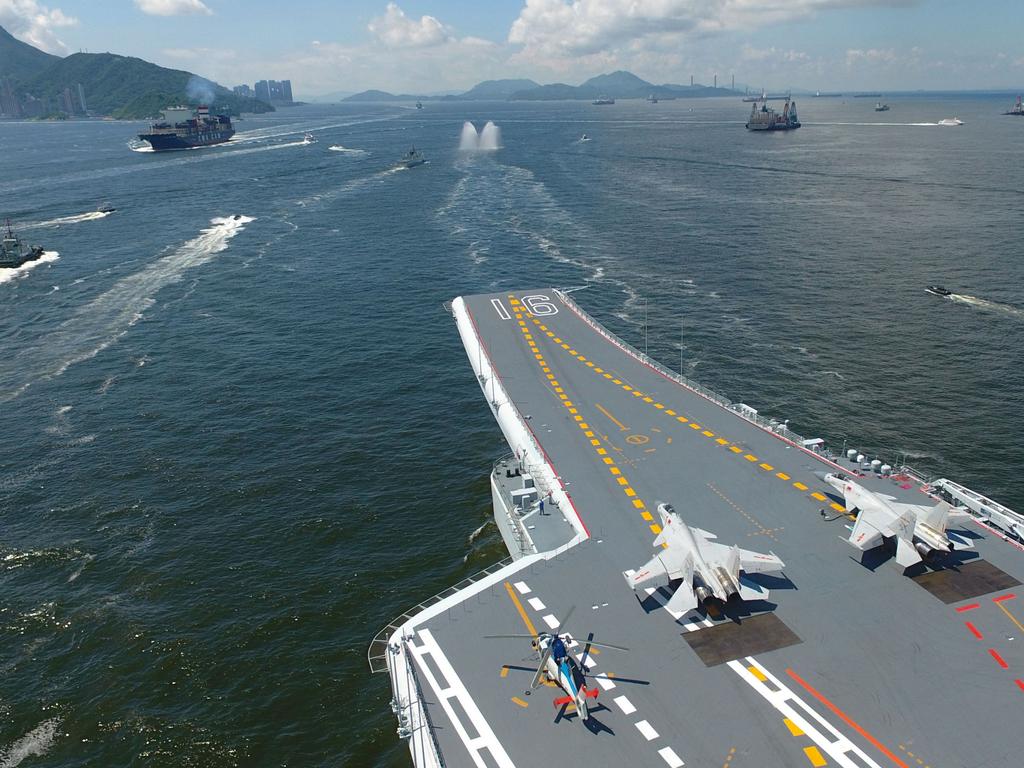Australia would be unable to respond to Chinese military base in the Pacific, review finds
A top-secret review reportedly concluded Australia would be “f***ed” if China established a military base in the Solomons.
Top-secret war-gaming exercises conducted for the Albanese’s government’s defence review concluded Australia would be “f***ed” if China established a military base in a nearby Pacific nation such as the Solomon Islands, according to a report.
The Sydney Morning Herald reported on Tuesday the detailed analysis of specific scenarios that could draw Australia into armed conflict was commissioned from experts from within the Defence Department, and included in the classified version of the Defence Strategic Review (DSR).
The landmark report, an unclassified version of which was released to the public last week, concluded that the Australian Defence Force (ADF) was “no longer fit for purpose” in the face of China’s unprecedented military build-up.
Last year, the Solomon Islands sparked widespread alarm in Canberra after signing a security pact with Beijing, with speculation China could gain a port for its navy less than 2000km from Australia’s shoreline, up-ending the balance of power in the region.

According to The Sydney Morning Herald, sources familiar with the classified version said the defence review examined – in addition to a possible war between the US and China over Taiwan – how Australia would respond if Beijing established a permanent military base in the Solomon Islands or another Pacific nation.
“The message was, ‘You’re f***ed’,” one source told the newspaper.
The news comes as the Albanese government unveils a $50,000 incentive bonus for ADF personnel to re-enlist for an additional three years after their initial service period in an effort to address a recruitment and retention crisis within the ranks.
The scheme, to be unveiled in next week’s federal budget, will benefit approximately 3400 personnel and cost $400 million over the forward estimates.
Meanwhile, the Opposition has called on the government to consider allowing foreigners, including Pacific Islanders, to serve in the ADF.
Labor is aiming to recruit more than 18,000 ADF personnel by 2040.
In the US, where the armed forces are facing similar recruitment and retention issues, hundreds of Army aviators who were set to leave the military have been told they owe another three years of service after their contracts were quietly reinterpreted, NBC News reported last week.

Meanwhile on Tuesday, a report in Axios detailed how US allies — Australia, South Korea, Japan, the Philippines and France — were preparing for the “nightmare scenario” of a war with China over Taiwan.
“The role for Australia in a Taiwan contingency is highly unlikely to be at the front line in the Taiwan Strait,” Ashley Townshend from the University of Sydney’s United States Studies Centre told the outlet.
Mr Townshend said Australia’s role in a Taiwan crisis would likely be securing sea lanes and tracking Chinese vessels, and potentially escorting US bombers en route to the Taiwan Strait.
In an interview with Sky News Australia on Monday, Taiwan’s Foreign Minister Joseph Wu predicted China would launch a cross-Strait attack in 2027.
“The tension has been rising and conflict seems to be more likely and peace less likely to maintain — we need to do everything to prevent war from happening,” Mr Wu said.
“Even though there’s no indication that a war is imminent, the Chinese military threat is becoming more serious.”
Mr Wu said four years, rather than two as suggested by some analysts, was the more likely time frame for an attack.
“That is what the Chinese leaders have said, by the year 2027 they will have the full capacity for launching a war against Taiwan and that happens to be the year Xi Jinping will assume the fourth term,” he said.
“If he’s not able to tell the Chinese people that he has established this legacy for the history of China, he might want to do something as a surprise so can tell them that he has accomplished something. Taiwan might be a scapegoat.”

Last week, the declassified defence review found as it stands, Australia is ill-equipped to defend itself and can no longer rely on “geography or warning time” ahead of conflict in the region.
The DSR, led by former Chief of Defence Sir Angus Houston and former Defence Minister Stephen Smith, looked at the location and make up of Australia’s military forces and the weapons they use.
“The threat of the use of military force or coercion against Australia does not require invasion … cyber warfare is not bound by geography,” the reviewers said.
“The rise of the ‘missile age’ in modern warfare, crystallised by the proliferation of long-range precision strike weapons, has radically reduced Australia’s geographic benefits, the comfort of distance and our qualitative regional capability edge.”
The government accepted, or accepted in principle all of the recommendations made – but not all of those were made public.
The most fundamental recommendation in the report was that Australia shift its defence posture from a fortress mindset to engaging beyond our borders.
It said that with rising tension, with the review specifically mentioning China, business as usual was no longer appropriate.

The review labelled the competition between China and the US as the “defining feature of our region and our time”.
Speaking alongside the Prime Minister Anthony Albanese in Canberra, Defence Minister Richard Marles described the review as a “watershed moment” for defence.
The ADF will have six new priorities — to develop Australia’s nuclear powered submarine capability, longer range strike capacity, speeding up the integration of new technologies into the military, workforce retention and recruitment, and improving strategic co-operation within the Indo-Pacific.
Mr Marles said the response to the DSR will cost $19 billion over the next four years, which includes the $9 billion in spending already announced to fund the AUKUS nuclear-powered submarines.
Around $7.8 billion of that will come from savings made through the gutting, delaying or cancelling of a number of projects.
The rest will come from a pot of money already within the defence budget.
– With NCA NewsWire






